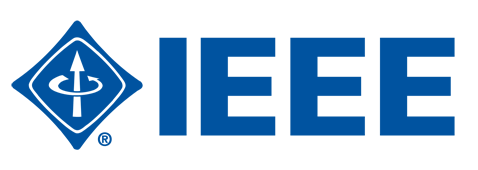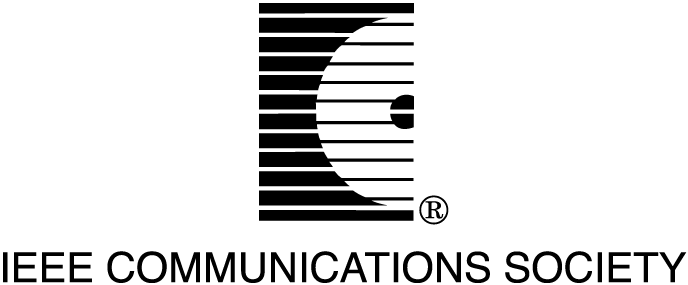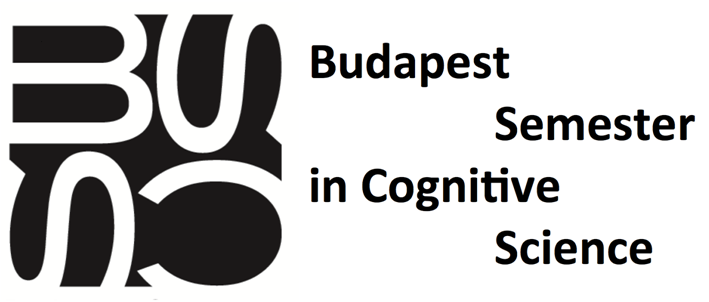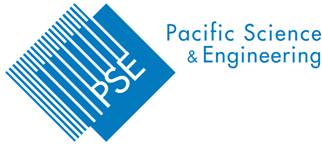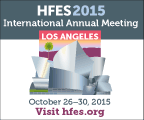Speakers
Keynote Speakers
Dr. Greg Zacharias
Chief Scientist of the U.S. Air Force
 Dr. Greg L. Zacharias is Chief Scientist of the U.S. Air Force, Washington, D.C. He serves as the chief scientific adviser to the Chief of Staff and Secretary of the Air Force, and provides assessments on a wide range of scientific and technical issues affecting the Air Force mission. In this role, he identifies and analyzes technical issues and brings them to the attention of Air Force leaders, and interacts with other Air Staff principals, operational commanders, combatant commands, acquisition, and science and technology communities to address cross-organizational technical issues and solutions. He also interacts with other services and the Office of the Secretary of Defense on issues affecting the Air Force in-house technical enterprise. He serves on the Executive Committee of the Air Force Scientific Advisory Board. He is the principal science and technology representative of the Air Force to the civilian scientific and engineering community and to the public at large.
Dr. Greg L. Zacharias is Chief Scientist of the U.S. Air Force, Washington, D.C. He serves as the chief scientific adviser to the Chief of Staff and Secretary of the Air Force, and provides assessments on a wide range of scientific and technical issues affecting the Air Force mission. In this role, he identifies and analyzes technical issues and brings them to the attention of Air Force leaders, and interacts with other Air Staff principals, operational commanders, combatant commands, acquisition, and science and technology communities to address cross-organizational technical issues and solutions. He also interacts with other services and the Office of the Secretary of Defense on issues affecting the Air Force in-house technical enterprise. He serves on the Executive Committee of the Air Force Scientific Advisory Board. He is the principal science and technology representative of the Air Force to the civilian scientific and engineering community and to the public at large.
Dr. Zacharias served on the Air Force Scientific Advisory Board for eight years, contributing to nine summer studies, most recently chairing a study on "Future Operations Concepts for Unmanned Aircraft Systems." He also chaired the Human System Wing Advisory Group, was a member of Air Combat Command's Advisory Group, and served as a technical program reviewer for the Air Force Research Laboratory (in Human Effectiveness and Information Systems). He was a member of the National Research Council (NRC) Committee on Human Factors (now the Committee on Human-Systems Integration) for over ten years, supporting a number of NRC studies including one for Defense Modeling and Simulation Office evaluating the state-of-the-art in military human behavior models, and co-chairing a follow-up study entitled "Organizational Models: from Individuals to Societies," which presents a roadmap for future DoD science and technology investments in this area. He has served on the DoD Human Systems Technology Area Review and Assessment (TARA) Panel.
Prior to assuming his current position, Dr. Zacharias worked as a Research Engineer at the C.S. Draper Laboratory and a Senior Scientist at Bolt Beranek and Newman Inc. before most recently serving as the President and Senior Principal Scientist of Charles River Analytics, a research and development company that he co-founded.
As the Department of Defense builds its Third Offset strategy for meeting the challenges of a newly forming adversarial environment such as light cyber-attacks and anti-access/area-denial (A2SD) actions, the potential advantages of unmanned systems and autonomous software have gained increasing attention. These advantages are particularly advantageous to future Air Force operations by increasing the range of operations, enhancing capabilities and providing new approaches to air power. Increased levels of autonomy can be brought to bear to enhance operations in both manned and unmanned aircraft, and in operations in space, cyber, command and control, intelligence, surveillance and reconnaissance, readiness, and sustainment across the Air Force.
In addition to discussing the above context, Dr. Zacharias will summarize the challenges of automation and autonomy for airman interaction and outline design approaches that produce autonomous systems ready to serve as a part of a collaborative team with airmen. He will then conclude by introducing a potential framework for autonomous systems research and development that he, with support from the Air Force Research Lab, plans to use to specify key "under the hood" functions, evaluate key technologies that can support implementation of these functions, and finally lay out a research strategy and demonstration program.
Dr. Matthias Scheutz
Professor of Cognitive and Computer Science at Tufts University & the Director of the Human-Robot Interaction Laboratory (HRILAB)
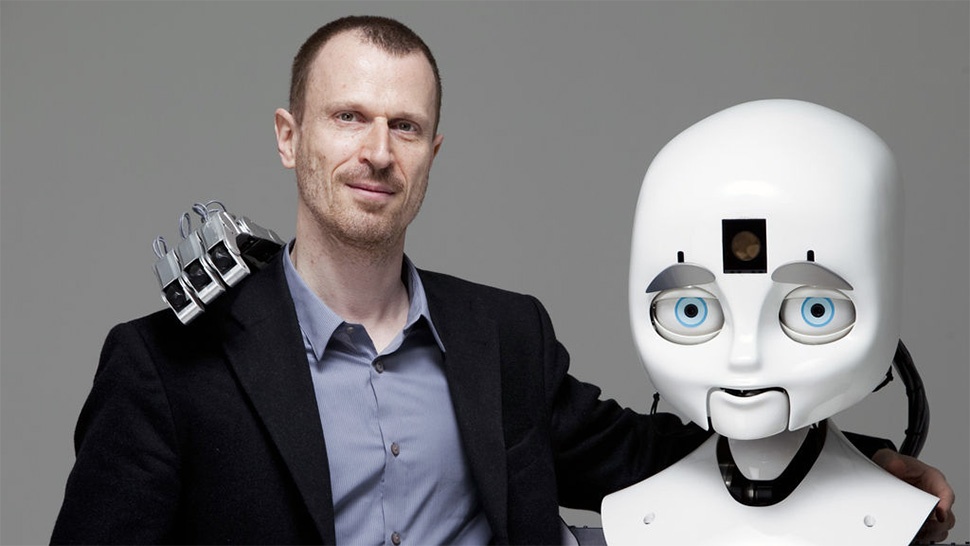
Dr. Matthias Scheutz is a Professor in Cognitive and Computer Science in the Department of Computer Science, an Adjunct Professor in the Department of Psychology, and the Bernard M. Gordon Senior Faculty Fellow in Engineering at Tufts University. He earned a Ph.D. in Philosophy from the University of Vienna in 1995 and a Joint Ph.D. in Cognitive Science and Computer Science from Indiana University Bloomington in 1999. He has more than 250 peer-reviewed publications in artificial intelligence, artificial life, agent-based computing, natural language processing, cognitive modeling, robotics, human-robot interaction, and foundations of cognitive science. As Director of the Human-Robot Interaction Laboratory at Tufts, his current research focuses on complex cognitive and affective robots with natural language capabilities for natural human-robot interaction.
Human-Robot Interaction (HRI) is an interdisciplinary field that aims to develop and evaluate interactions between humans and robots. As such it intrinsically incorporates experimental methods from cognitive science as well as algorithm and architecture development from computer science and robotics, providing a particularly fertile playground for research in embodied social cognition.
In this presentation, I will use various examples from our work to show how robots can be used both as experimental tools for investigating different aspects of human cognition and as implementation platforms for evaluating cognitive models and computational architectures.
Tribute Session to Dr. David L. Hall
Dr. David L. Hall
Professor of Information Sciences &
Technology (IST) at the Pennsylvania State
University & Director of the Center for Network
Centric Cognition & Information Fusion
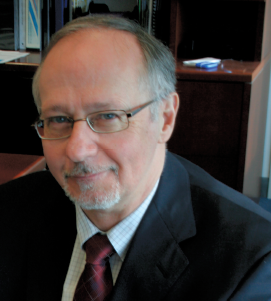 Dr. David L. Hall is a Professor of the College of Information Sciences and Technology (IST) at the Pennsylvania State University and founding Director of the Center for Network Centric Cognition and Information Fusion. From 2010 to 2014 he served as the Dean of the College. He has over 30 years of experience in multisource information fusion, software system development, and research and development. He served as the Associate Director and Senior Scientist for the Penn State Applied Research Laboratory, Director of IR&D at HRB Systems, and Research Manager at the Computer Sciences Corporation. He has consulted for the USAF TENCAP Program, the Joint IED Defeat Organization (JIEDDO), the National Security Agency, NASA, and acted as a Technical Advisory to the Defense Department's Joint Directors of Laboratories (JDL) Data Fusion Group. His honors include award of the DoD Joe Mignona National Data Fusion for his contributions to data fusion and being named as an IEEE Fellow for his contributions to data fusion.
Dr. David L. Hall is a Professor of the College of Information Sciences and Technology (IST) at the Pennsylvania State University and founding Director of the Center for Network Centric Cognition and Information Fusion. From 2010 to 2014 he served as the Dean of the College. He has over 30 years of experience in multisource information fusion, software system development, and research and development. He served as the Associate Director and Senior Scientist for the Penn State Applied Research Laboratory, Director of IR&D at HRB Systems, and Research Manager at the Computer Sciences Corporation. He has consulted for the USAF TENCAP Program, the Joint IED Defeat Organization (JIEDDO), the National Security Agency, NASA, and acted as a Technical Advisory to the Defense Department's Joint Directors of Laboratories (JDL) Data Fusion Group. His honors include award of the DoD Joe Mignona National Data Fusion for his contributions to data fusion and being named as an IEEE Fellow for his contributions to data fusion.
Colonel Jacob L. Graham, USMC (Ret)
Professor of Practice at the Pennsylvania State University College of Information Science and Technology
 After retiring from the Marine Corps with 26 years of active service, Jake joined the IST faculty in October 2007. He has extensive operational experience at all levels of warfare (tactical to strategic). An attack helicopter pilot by military occupational specialty, Col Graham has operated across the globe as an attack helicopter commander, mission commander and Aviation Weapons and Tactics Instructor. Col Graham has served in various roles throughout his military career, including Intelligence Officer, Electronic Warfare Officer, Air Planner and Air Targeting Officer. He has completed two Pentagon tours, one as a Political-Military Affairs analyst and another as the Assistant Inspector General for Marine Corps Matters. He retired from the Office of the Secretary of the Navy where he was the President of the Naval Discharge Review Board. In his last operational overseas tour Col Graham served as the Non-Strategic Nuclear Force Advisor to the Commander, U.S. European Command and Mission Commander for the EUCOM Airborne Nuclear Command Post. In this capacity, he was also the senior U.S. advisor for U.S. NATO nuclear operations. He went forward during the Iraqi war as the Operations Officer (J-3) for Joint Task Force North, US EUCOM/Central Command, whose mission was to facilitate the movement of combat forces across Turkey into northern Iraq. He has been both a Squadron Commander and an Airbase Commander. Col Graham also completed a 4-1/2 year White House flying tour piloting Presidents George H. W. Bush and William J. Clinton. Col Graham is a graduate of the Marine Corps Command and Staff College and the Air Force Air War College. Jake is the Director of the Red Cell Analytics Lab and teaches Security and Risk Analysis. His passion is writing and facilitating Analytic Decision Games, teaching analytic methods and mentoring students. He is married to Dr. Kim Graham, a Penn State Graduate and retired Lieutenant Colonel of Marines. He and Kim have two children, Meghan, 21, a senior at Penn State who will follow-on with a Masters of Information Sciences, and Brett, 18, a senior at State College High School, who was recently awarded a full scholarship to play football at UCONN.
After retiring from the Marine Corps with 26 years of active service, Jake joined the IST faculty in October 2007. He has extensive operational experience at all levels of warfare (tactical to strategic). An attack helicopter pilot by military occupational specialty, Col Graham has operated across the globe as an attack helicopter commander, mission commander and Aviation Weapons and Tactics Instructor. Col Graham has served in various roles throughout his military career, including Intelligence Officer, Electronic Warfare Officer, Air Planner and Air Targeting Officer. He has completed two Pentagon tours, one as a Political-Military Affairs analyst and another as the Assistant Inspector General for Marine Corps Matters. He retired from the Office of the Secretary of the Navy where he was the President of the Naval Discharge Review Board. In his last operational overseas tour Col Graham served as the Non-Strategic Nuclear Force Advisor to the Commander, U.S. European Command and Mission Commander for the EUCOM Airborne Nuclear Command Post. In this capacity, he was also the senior U.S. advisor for U.S. NATO nuclear operations. He went forward during the Iraqi war as the Operations Officer (J-3) for Joint Task Force North, US EUCOM/Central Command, whose mission was to facilitate the movement of combat forces across Turkey into northern Iraq. He has been both a Squadron Commander and an Airbase Commander. Col Graham also completed a 4-1/2 year White House flying tour piloting Presidents George H. W. Bush and William J. Clinton. Col Graham is a graduate of the Marine Corps Command and Staff College and the Air Force Air War College. Jake is the Director of the Red Cell Analytics Lab and teaches Security and Risk Analysis. His passion is writing and facilitating Analytic Decision Games, teaching analytic methods and mentoring students. He is married to Dr. Kim Graham, a Penn State Graduate and retired Lieutenant Colonel of Marines. He and Kim have two children, Meghan, 21, a senior at Penn State who will follow-on with a Masters of Information Sciences, and Brett, 18, a senior at State College High School, who was recently awarded a full scholarship to play football at UCONN.
Dr. Alan Steinberg
Alan Steinberg is recognized internationally as one of the leading experts in sensor data fusion; as a designer, developer and operational user of major multi-sensor targeting, electronic combat, and intelligence systems. He is the recipient of the Mignona Award for outstanding achievement in data fusion. He has served on several blue-ribbon panels for the US Government to evaluate and recommend technology developments and the restructuring of the Intelligence Enterprise. He provides seminars and technical support to fusion developments in the US and internationally.
Invited Speakers
Dr. Edward Straub
US Army TARDEC, Ground Vehicle Robotics
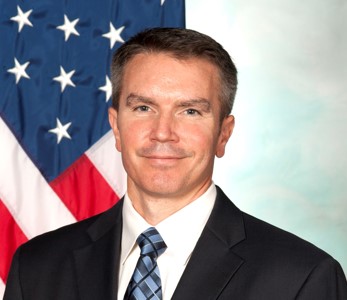 Dr. Edward Straub is a program manager and researcher with the U.S. Army. He is responsible for the Applied Robotics for Installations and Base Operations (ARIBO) program. Previous work includes consulting and strategic planning for defense organizations, automotive, and utilities companies in acquisition process improvement, organizational development, supply chain management, and software system integration. He is a former Marine and fellow at Case Western Reserve University where he received his Doctor of Management in 2015. His area of study was team dynamics and human social systems.
Dr. Edward Straub is a program manager and researcher with the U.S. Army. He is responsible for the Applied Robotics for Installations and Base Operations (ARIBO) program. Previous work includes consulting and strategic planning for defense organizations, automotive, and utilities companies in acquisition process improvement, organizational development, supply chain management, and software system integration. He is a former Marine and fellow at Case Western Reserve University where he received his Doctor of Management in 2015. His area of study was team dynamics and human social systems.
The Applied Robotics for Installation and Base Operations (ARIBO) program seeks to match technology with operational need to demonstrate and improve autonomous vehicle systems. It is a series of living laboratories that will guide the Army's application of, and investment in, robotic technologies. In addition to technology development, ARIBO familiarizes users and non-users with autonomous technologies and provides real-world data for cost-benefit analyses.
Mr. Steve Jameson
DARPA
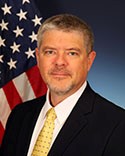 Mr. Steve Jameson joined DARPA in August 2014 after a 27-year career in advanced technology development at Lockheed Martin. His research focuses on sensor and data fusion, as well as unmanned system autonomy. Mr. Jameson has contributed to numerous DARPA initiatives throughout his career including the Unmanned Combat Armed Rotorcraft (UCAR), DARPA Urban Challenge, LANdroids, Nano Air Vehicle and Information Innovation Office (I2O) Insight programs. At DARPA, Mr. Jameson is investigating and exploring algorithms and architectures for situational awareness and decision-making, with a focus on challenging problems in the intelligence, surveillance and reconnaissance (ISR) and Command and Control (C2) domains. As a cross-cutting issue he is also working to address the problems associated with human trust in automation.Mr. Jameson holds a Bachelor of Science degree in electrical engineering from Johns Hopkins University and a Master of Science degree in computer science from the University of Pennsylvania.
Mr. Steve Jameson joined DARPA in August 2014 after a 27-year career in advanced technology development at Lockheed Martin. His research focuses on sensor and data fusion, as well as unmanned system autonomy. Mr. Jameson has contributed to numerous DARPA initiatives throughout his career including the Unmanned Combat Armed Rotorcraft (UCAR), DARPA Urban Challenge, LANdroids, Nano Air Vehicle and Information Innovation Office (I2O) Insight programs. At DARPA, Mr. Jameson is investigating and exploring algorithms and architectures for situational awareness and decision-making, with a focus on challenging problems in the intelligence, surveillance and reconnaissance (ISR) and Command and Control (C2) domains. As a cross-cutting issue he is also working to address the problems associated with human trust in automation.Mr. Jameson holds a Bachelor of Science degree in electrical engineering from Johns Hopkins University and a Master of Science degree in computer science from the University of Pennsylvania.
Shared human-machine reasoning has been a topic of research for decades. Much prior work has focused on shared reasoning for selection of actions, with significant successes in areas including associate systems and control of unmanned systems. Recent work has enabled models of shared human-machine reasoning for descriptive situational awareness. Current and future military decision-making problems involve the combination of complex environments and sparse, inconclusive data raise the need for models of shared human-machine reasoning for explanatory and predictive situational awareness.
Dr. Mica Endsley
SA Technologies, Inc.
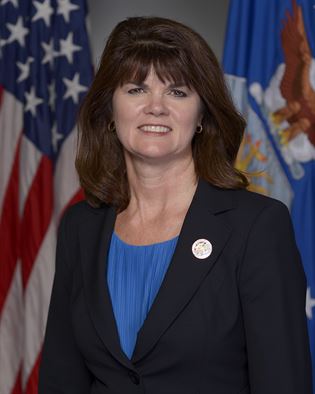
Dr. Mica Endsley is President of SA Technologies, a cognitive engineering firm and is the former Chief Scientist for the US Air Force. She is Past-President of the Human Factors and ERgonomics Society. She received a Ph.D. in Industrial and Systems Engineering from the University of Southern California. Dr. Endsley is a recognized world leader in the design, development and evauation of systems to support human situation awareness and decision-making. She has authored over 200 scientific articles and is the co-author of "Designing for Situation Awareness".
This presentation will provide an overview of situation awareness research, an update on its theoretical foundation, and its implications for the development of information fusion and decision support systems.
